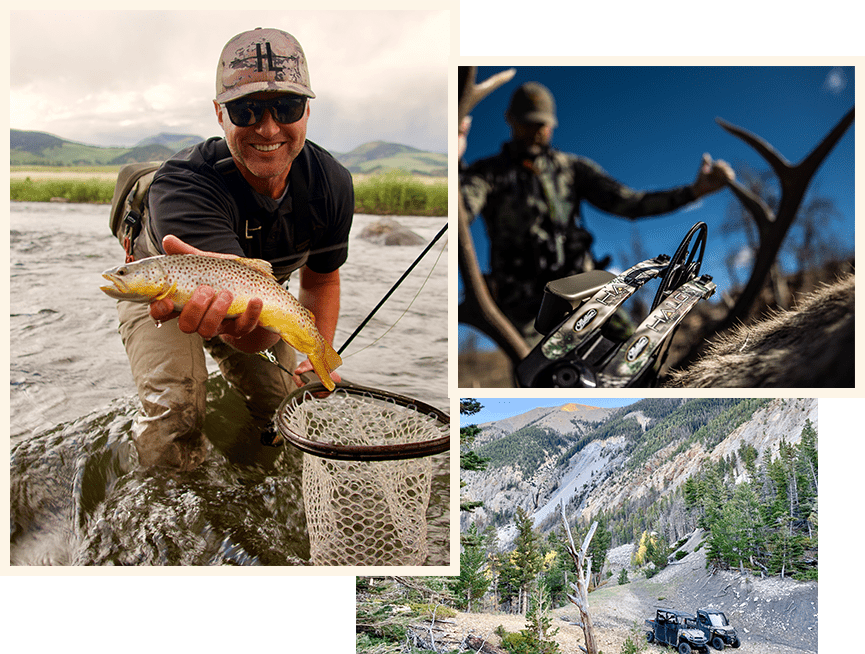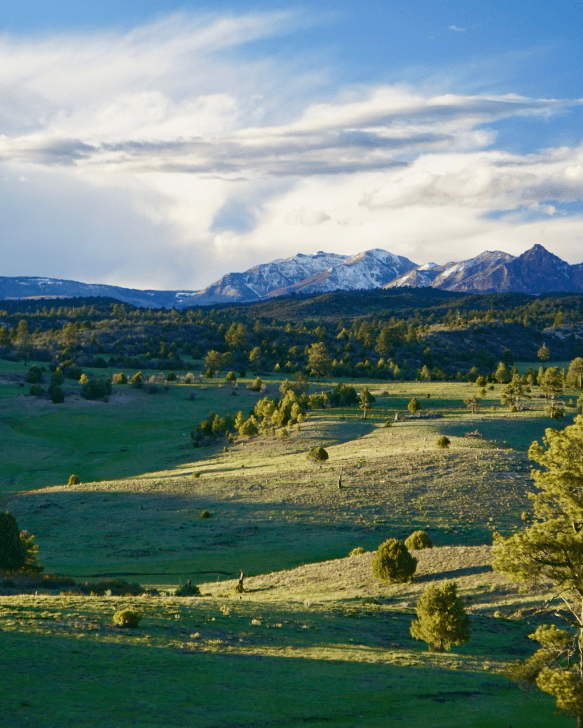What is a conservation easement?
In the simplest terms possible, conservation easements are development restrictions placed on a property in exchange for tax benefits that can be utilized by the grantor.
What kind of sacrifices should ranch real estate owners expect to make in order to achieve these tax incentives? In a typical conservation easement agreement, a rancher typically gives up the ability to subdivide the ranch into multiple parcels, while still mainlining the historical agricultural and recreational uses of the ranch.
Sometimes, landowners can get more benefits for giving up additional rights, like public uses for fishing and hunting, or the ability to mine.
In other words, as Hunter Harrigan of Harrigan Land Co. puts it, “The more a landowner give up, the more they get back in tax incentives.”
Of course, the land will need to possess important conservation value. For instance, maybe it contains within its boundaries an important source of clean water. Perhaps it’s important wildlife habitat or big-game winter range.
So long as their land has conservation value, ranch owners can enter into conservation easement agreements and continue to use the land as it’s been used before, with the caveat that the agreement might allow other or disallow certain uses.
If you run cattle on the land, and it’s determined that livestock don’t detract from the land’s conservation assets, grazing is often encouraged under a conservation easement agreement. If you lease your ranch’s trout stream or hunting opportunities to a local outfitter, you can continue to do so, if the land trust or conservancy agrees.

How can ranch owners benefit from conservation easements?
In return for protecting acreage under a conservation easement, ranch real estate owners can earn significant tax credits.
In Colorado, for instance, ranch owners who protect acreage through conservation easements can receive up to 90 percent of the easements value in tax credits (not property tax cuts, mind you), with a cap of $5 million. That’s a significant savings, and can, in some cases, help ranchers retain their property.
Consider, too, that a conservation easement is more than just protecting acreage from development. In many rural communities, a conservation easement equates to a very real community service. They can protect water resources, enhance hunting and fishing opportunities, protect viewsheds, and even allow public access, in some cases.
By keeping open land in its traditional state, ranch owners can glean some real PR benefits. For many in the rural West, cows and much preferred to condos.
And, of course, keeping healthy land free from development has a trickle-down impact on local recreation economies.

Eyes wide open
Yes, conservation easements can provide significant tax benefits for ranch real estate owners. But before entering into an agreement with a land trust or a land conservancy, you should understand a few things.
First, conservation agreements are restrictive by nature. If you have development plans for your ranch, a conservation easement is likely not something you want to explore.
Often, conservation easements are permanent, or last for many years. Extraction from a conservation easement can be impossible, or, ast least, very difficult and costly. Additionally, most ranch appraisers would likely say that conservation easements devalue ranch real estate by at least 30 percent.
“The more development potential the ranch has,” Harrigan says, “the greater the easement will impact the resale value.”
Second, protecting land under a conservation easement, even if you intend to use it just as you always have, gives the land trust or land conservancy some influence over the property. If you’re not comfortable with this, don’t consider a conservation easement.
“The pool of potential buyers for ranches encumbered by conservation easements is smaller, as many buyers like the ability to put an easement on the ranch themselves,” Harrigan says.

Final word
In the rural West, where wide open spaces are preferred to strip malls and high-density development, conservation easements can be important land-protection tools.
That said, conservation easements can be restrictive for landowners interested in development or other uses, even if it’s years down the line. Ranch real estate owners should only enter into a conservation agreement if the agreement is right for them and their future plans.


